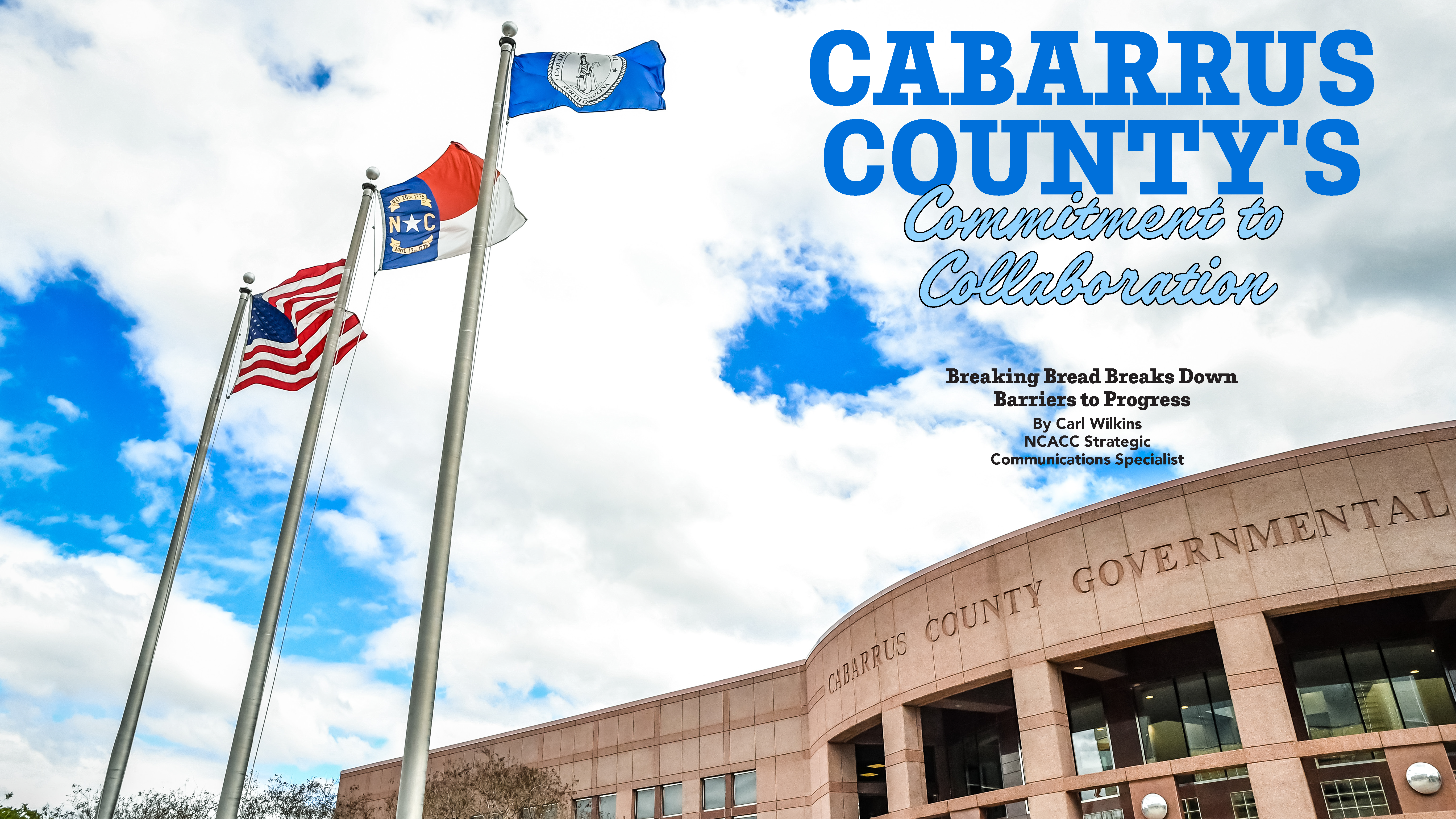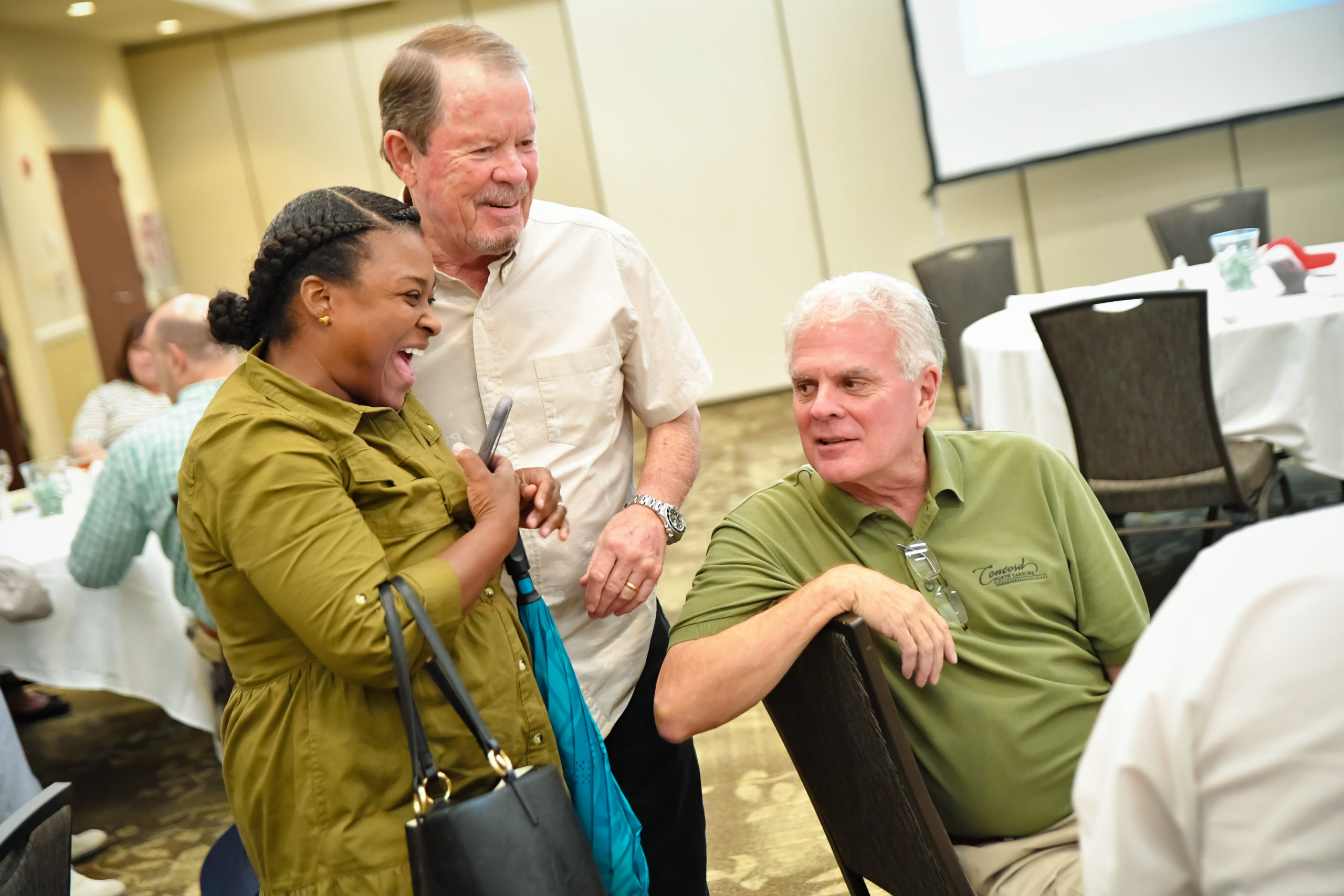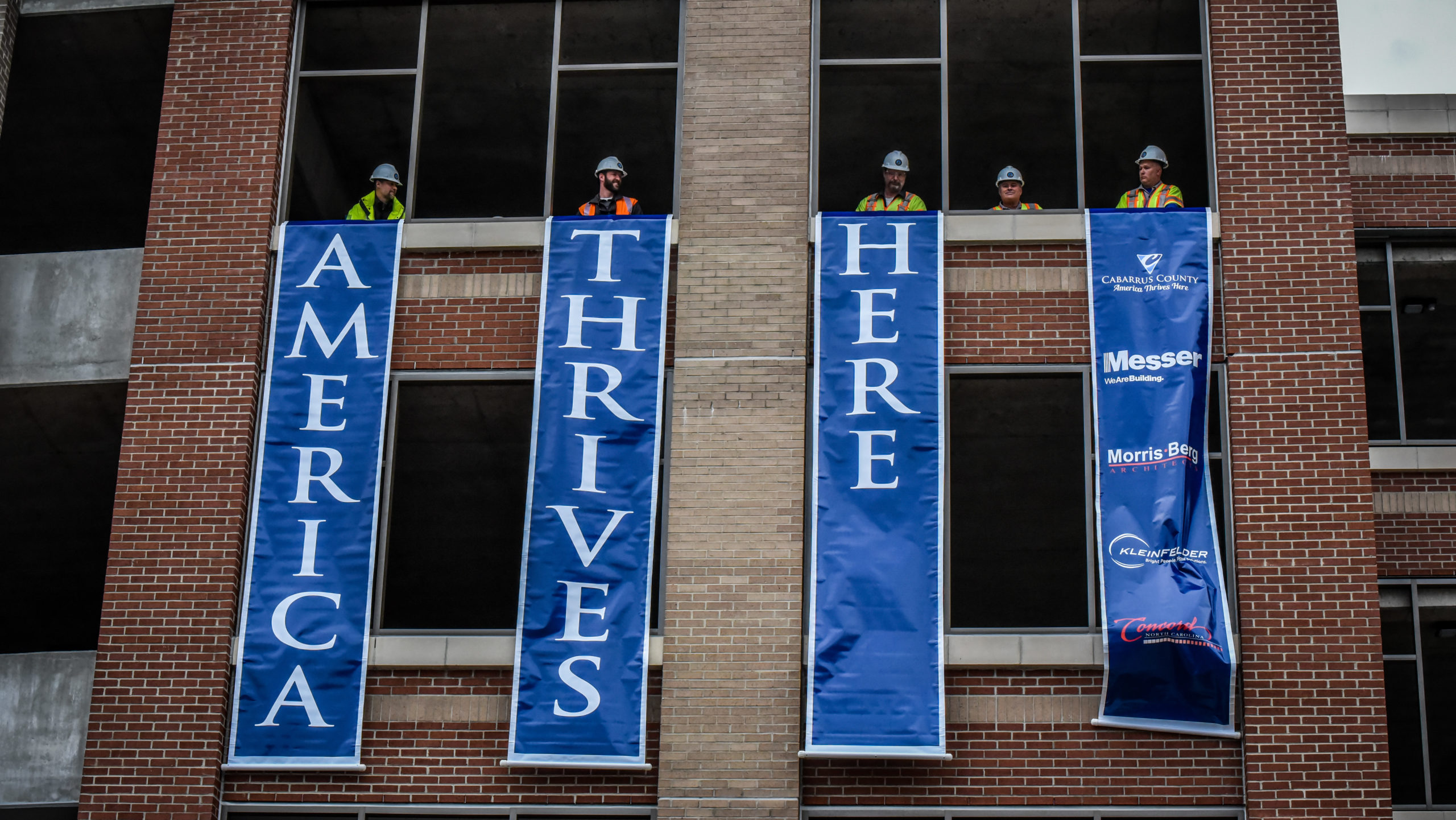
Cabarrus County’s Commitment to Collaboration: Breaking Bread Breaks Down Barriers to Progress
By Carl Wilkins | NCACC Strategic Communications Specialist
Cabarrus county is located in the south central region of North Carolina and is the host county for the NCACC 115th Annual Conference. This year’s annual conference theme, “On Track To Transform,” is fitting for Cabarrus County as the county continually brings transformational projects to the community through intentional collaboration with its municipal partners. Cabarrus County’s website states, “Cabarrus County embraces growth and continued improvement of quality of life for all citizens. Collaboration is at the heart of our mission – people, communities, and government working together and focused on our successful future.”
Communication is Key to Collaboration
Cabarrus County’s Elected Officials Summit embodies its mission of collaboration. Established in 2015, the Cabarrus Board of Commissioners, with Commissioner Diane Honeycutt serving as the guiding force, created the Elected Officials Summit model to facilitate relationship-building among county and municipal leaders. The idea was to jumpstart ongoing dialogue with the hope to increase intergovernmental cooperation for the benefit of residents.
Cabarrus County Board of Commissioners Chairman Steve Morris said open communication was a critical component of the summit: “we wanted to create an open dialogue and comfort level so that municipal elected leaders feel free to pick up the phone and call us if they have questions or concerns, and vice versa. If we’re doing something great, we want to hear about it, and if something is problematic, we still want to hear about it.” The Elected Officials Summit marked the first time the governing boards of all five municipalities and the county met jointly, establishing a precedent for future summits.
“The thinking behind creating the summit was based on pretty simple southern hospitality,” said Chairman Morris. For Cabarrus County leaders this means being a good neighbor and uniting stakeholders such as municipalities, county officials, and local organizations every quarter for dinner and to establish relationships and engage in open dialogue about improving residents’ lives through the work of the community. Additionally, guest speakers and subject matter experts are invited to the summits to educate attendees on pertinent topics, such as economic development, transportation, public health, and education.
The summits have facilitated local elected leaders working together on the creation and execution of many complex projects to benefit the community. “The Elected Officials Summit has become one of the most important things we do because there’s very little you can accomplish without relationships. The relationships and trust established through the summits are vital to the growth of our county and municipalities,” said Chairman Morris.

Downtown Kannapolis Project
Since the Elected Officials Summits’ inception, numerous partnerships and projects have come to fruition in Cabarrus County, notably the downtown Kannapolis project to restore and redevelop the area. After Kannapolis’s dominant employer closed, the local economy took a downward turn, but after the Kannapolis City Council purchased the downtown properties back, the city is recovering. However, the city was faced with significant expense to improve aging infrastructure, so Cabarrus County partnered with the city to create a tax increment financing district to provide the necessary initial investment to begin development. This partnership allowed the downtown Kannapolis project to flourish and reinvigorate its cityscape with sports and entertainment and mixed-use developments. The Downtown Revitalization Project is expected to bring over $370 million in private investment to Kannapolis.
Streamline County and City Services
Always on the lookout for opportunities to save money and time, Cabarrus County and its municipalities partnered to streamline services such as inspections and permits using an online service called Accela. Before this effort, the county and city services weren’t compatible or online, making the process cumbersome for residents and developers.
“Accela eliminates the need for you to go back and forth and submit information in person at City and County offices,” said Annette Keller, Cabarrus County Director of Communications. Cabarrus County rallied the municipalities to use the Accela online platform, allowing county and city services to be accessed in one place. According to Keller, Accela promotes intergovernmental collaboration: “this system enables city and county staff to work together more efficiently. Instead of staff traveling back and forth, we can view the plans online simultaneously, which allows us to better coordinate the approval process and avoid errors.”
Over time, the established partnership grew into the county managing the municipalities’ tax collections and combining county and city taxes into one bill for residents. Now, residents all receive one tax bill with both their county and city taxes outlined. “It’s a good deal for the taxpayers, and due to the economy of scale, this partnership has saved the municipalities some money as well,” said Chairman Morris.
Cabarrus County Courthouse
Cabarrus County is honored and excited to begin expanding and renovating their fifth courthouse during its 228-year history in the county seat, Concord. According to North Carolina’s General Statutes, counties are required to build and maintain court facilities. Courthouses serve as beacons in communities; they can act as pillars to uphold justice and a shield to protect residents. The aging 45-year-old Cabarrus County Courthouse has served the community diligently; however, its expansion is needed to help with the ongoing increase in local court use. According to the North Carolina Administrative Office of the Courts, the use of the Cabarrus County Courthouse increased 131 percent over the last three decades.
“This building … is a manifestation of our community’s commitment to the cause of justice,” Cabarrus County Senior Resident Superior Court Judge Martin McGee said. “It is being built the Cabarrus way—with listening, leadership, collaboration, and a dedication to doing things the right way.”
This shared spirit of collaboration led Cabarrus County to enter into a cooperative parking agreement and tax increment financing district with the City of Concord to build a parking deck that serves the courthouse, downtown businesses, and families. Cabarrus County Parking Deck is a five-story, 614-spot parking deck built across from the Cabarrus County Courthouse in downtown Concord to support growth. The deck opened to the public March 2019.
“We will add 614 parking spots into the heartbeat of our community,” said Chairman Morris. “That’s 614 daily opportunities for visitors who conduct Concord’s official business, take in a cultural event at The Davis Theater or enjoy a meal at one of downtown’s many chef-driven restaurants.” Construction on the 250,000-square-foot Cabarrus Courthouse began in 2020 and is expected to be completed in 2023. Cabarrus County Chairman Morris knows the importance of economic development as a small business owner. His passion for community and creating an environment conducive to outside investment and small business owner prosperity inspired him to become a county commissioner. During his tenure as a commissioner, he learned that intergovernmental collaboration isn’t just good for residents, but also for business.

“Before outside investors and companies visit your county, they have done their research. They are looking out for conflict among elected bodies and are talking with local business owners to understand the economic landscape. Companies will probably head elsewhere if they see there is discord among elected bodies. However, if they see a united front and community leaders are collaborating on a shared vision and goals, that is good for business and has given us a huge advantage in attracting outside investment.”
Cabarrus County’s intergovernmental collaboration has paid off, according to the chairman, who says “by showing a genuine, united front, we have been able to bring in conservatively $2 billion in outside investment this past year from companies such as Red Bull, Ball, Eli Lilly, and Rauch.”
This cohesive front among the communities in Cabarrus is the product of conversations around a shared table. Whether it is taking on new building projects, finding solutions for good financial stewardship, or economic development initiatives, the keys to success are gathering perspectives and breaking down barriers. When leaders are willing to pull up a chair, communicate, and collaborate, positive transformation comes as a result.
